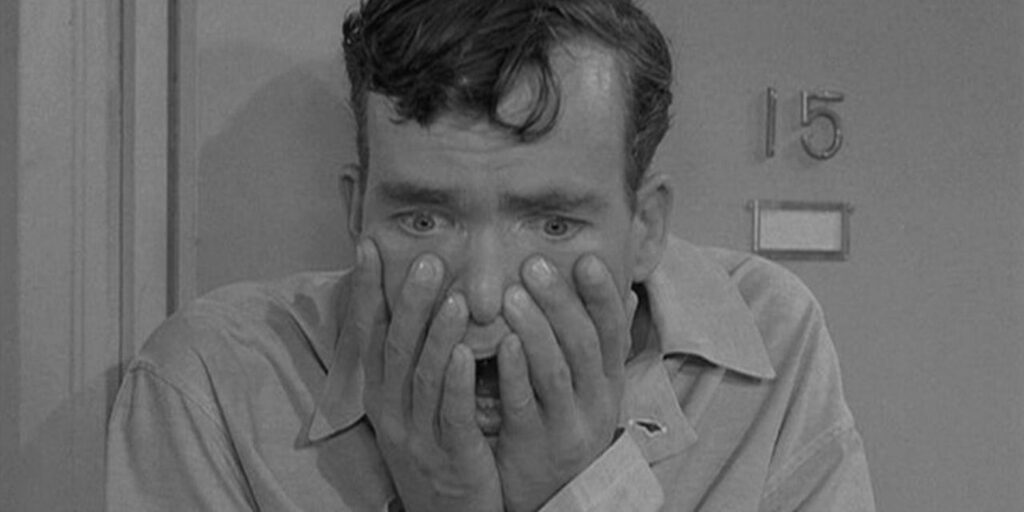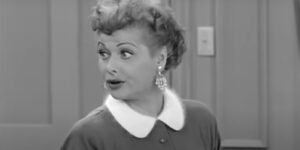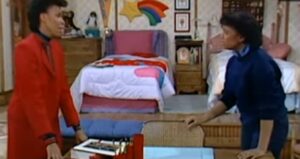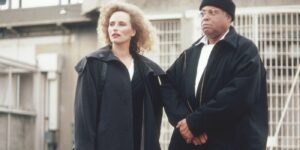
Today, we look at how an early Twilight Zone episode centered on existential dread must have been quite the sight for 1950s TV audiences.
This is “All the Best Things,” a spotlight on the best TV episodes, movies, albums, etc.
This is a Year of Great TV Episodes, where every day this year, we’ll take a look at great TV episodes. Note that I’m not talking about “Very Special Episodes” or episodes built around gimmicks, but just “normal” episodes of TV shows that are notable only because of how good they are.
The 1950s was a strange time in television, as the access to TV audiences was pretty limited, and the TV companies tended to have a pretty dim view of the TV-watching public. Edward R. Murrow was allowed to do See It Now, but only in exchange for doing a celebrity interview program, as well.
Next month, I’m going to do a special theme month of the Year of Great TV Episodes, where every day will be a great Black-centric TV episode for Black History Month, and I’m going to have to narrow my picks from 1960s-2010s. THAT’S how bad the options are for the 1950s when it comes to Black-centric TV episodes. There just aren’t any really good examples (could I find one or two? Maaaaaaybe, but I doubt it). So yes, 1950s TV was limited in scope in a very bad way. However, I think that has unfairly made people think that even the higher level of TV audience in the 1950s was less sophisticated, and that’s just not the case. It was access, pure and simple.
That said, with that in mind, when Rod Serling’s The Twilight Zone debuted, it was still a very big shock to the senses for most audiences. 10pm on Friday nights on CBS in the 1958-59 season was a decent, but not great, crime series called The Lineup. And then suddenly to go from that to the twisted mind of Rod Serling? I was about to write, “It had to be a shock to the senses,” but I realize that there was news coverage of the show at the time, so we KNOW it was a shock to the senses.
Dustin Waters had a great article on how the reaction to Serling at the time from the audience was best described by this TV Week column in The Chicago Tribune that let Serling explain the show to the audience of the column, “There have been so many inquiries about the bizarre Twilight Zone stories that TV Week asked the author and producer, Rod Serling, to explain what he is attempting to do.”
Serling was famous at the time for his TV movies, so even the people who LIKED Serling were shocked at him launching a weekly science fiction series, with Mike Wallace telling him before the show’s launch, “…so for the time being and for the foreseeable future, you’ve given up on writing anything important for television, right?”
When the show actually came out, critics raved about it, audiences were bewildered by it, but eventually, the audiences started watching it in pretty good amounts, and the show was a moderate enough hit.
The episode I’m spotlighting is “And When the Sky Was Opened,” which is a particularly strong example of the sort of episode that must have just blown audiences’ minds at the time. An official (but very loose) adaptation of the 1953 Richard Matheson story, “Disappearing Act” (which, in turn, was almost assuredly based on Phillip McDonald’s 1949 story, “Private-Keep Out!”), the story features three astronauts home from a mission where their spacecraft crashed upon re-entry. USAF Lieutenant Colonel Clegg Forbes (Rod Taylor) visits his friend Major William Gart (Jim Hutton) in the hospital, where Gart has a broken leg.
Forbes is freaking out because when they landed, there were THREE of them, but now only Forbes remembers the third man, Colonel Ed Harrington (Charles Aidman), and the newspapers now say TWO astronauts where they once said THREE. Gart thinks Forbes is cracking up, but we get a flashback to Forbes and Harrington at a bar where Harrington suddenly feels like he is slipping away. Harrington calls his parents, and they say they don’t have a son.
Harrington then disappears, and no one at the bar remembers him, as they all think Forbes is crazy. Obviously, the same thing happens to Forbes at Gart’s hospital room. The newspaper now says only one astronaut, and sure enough, by the end of the episode, hospital room #15 is empty and there is no record of any space mission, or the space flight at all.
The existential DREAD on the faces of all of these men as they realize what is happening to them is FREAKY AS HECK.
Serling wrote the episode, with Douglas Heyes directing. It’s so disturbing, and I can’t imagine what the 1959 TV audiences thought of it.
Okay, if I’m going to have 344 more of these, I could use suggestions, so feel free to email me at brian@poprefs.com!










RE: Black-centric 1950s TV episodes,
Maybe the Jack Benny Program might be worth a look. Rochester was an integral part of the show, and I don’t think that his character was that bad for the era.